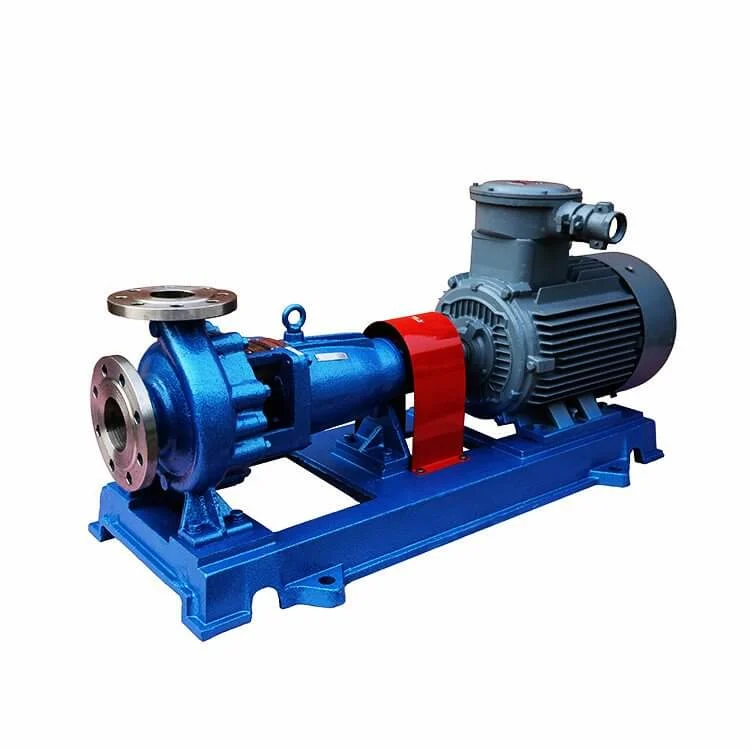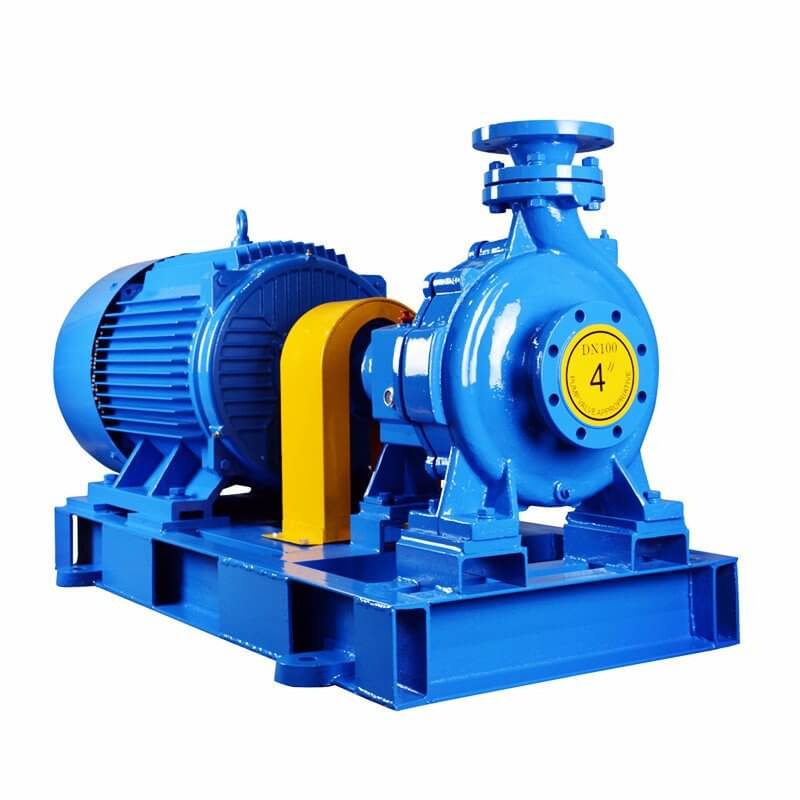Industrial Chemical Pump
Our chemical pump is a single-stage, horizontal, radial split type. Usually, they are driven by the motors, so it is called electric chemical pump. The body is supported by feet and adopts a single suction radial impeller, axial suction, and radial discharge. These pumps are equipped with cooling, flushing, or sealing fluid systems. Depending on the application, the front and rear mouth rings and balanced axial force are used. The shaft seals can be customized, and single or double end mechanical seals and packing seals can be employed.
Corrosion has always been one of the biggest and most hazardous headaches for operating equipment involving chemicals. A little carelessness may damage the equipment, cause accidents, or even cause disasters. According to relevant statistics, about 60% of the damage to chemical equipment is caused by corrosion. Therefore, when selecting industrial chemical pumps, close attention must be paid to the materials from which they are constructed. There is a common misunderstanding that stainless steel is considered a “universal material. This, however, is not necessarily true. It is not right to insist on choosing stainless steel chemical pumps, regardless of media and environmental conditions.
The following are points to consider when selecting a chemical centrifugal pump to be used with some commonly used chemical media:
Sulfuric acid
As one of the strongest and most corrosive media, sulfuric acid is an important industrial raw material with a wide range of uses. The rate of corrosion will change with concentration and temperature. For concentrations of more than 80%, and a temperature of less than 80°C, carbon steel and cast iron have good corrosion resistance, but are not suitable for high-speed sulfuric acid flows. Also, ordinary stainless steels, including 304 (0Cr18Ni9) and 316 (0Cr18Ni12Mo2Ti), are of limited use with sulfuric acid media. Therefore, the chemical centrifugal pump is usually made of high silicon cast iron (difficult to cast and process) and high alloy stainless steel. Fluoroplastics have better resistance to sulfuric acid, and using a fluorine-lined pump (F46) is a more economical option.
Hydrochloric acid
Most metals are vulnerable to hydrochloric acid corrosion (including various stainless-steel materials), and molybdenum-containing high-silicon iron can only be used for 30% concentrations at 50°C. In contrast to metallic materials, most non-metallic materials have good corrosion resistance to hydrochloric acid, so rubber-lined rubber industrial pumps and plastic industrial pumps (e.g., polypropylene, fluoroplastics, etc.) are the best choices for transport.
Sodium hydroxide (lye)
Iron and steel are widely used with sodium hydroxide solutions below 80°C and 30% concentration. There are also many factories that use ordinary stainless steel at 100°C and concentrations of below 75%. Although the risk for corrosion is increased, it is economical. The corrosion resistance of ordinary stainless steel to lye has no obvious advantages when compared to cast iron. As long as a small amount of iron is allowed to be mixed in the medium, stainless steel chemical transfer pump is not recommended. For high-temperature sodium hydroxide, titanium and titanium alloys, or high alloy stainless steel are generally used.



